New laws, changes coming into Australia on July 1 2019 and how they affect you
The new financial year is here, bringing with it a raft of changes that impact everything from tax and child care, to power prices and education. See how they affect you.
Companies
Don't miss out on the headlines from Companies. Followed categories will be added to My News.
Australians are about to see a raft of changes come in from July 1 that will change the way we all work and live.
See what’s afoot in some of the new rules coming into force that affect families with their tax, wages, child care, power prices, property and cars.
Other changes are also coming for retirees with superannuation and pensions.
FAMILY TAX BENEFIT CHANGES
The Family Tax Benefit (FTB) Part A higher income free area will increase from $94,316 to $98,988 on July 1. The same income test for all families with an adjusted taxable income over $98,988 will also be used. FTB Part A will reduce by 30 cents for every dollar families earn over this amount.
INCOME TAX RELIEF IN LIMBO
The Coalition’s income tax cuts include a three-stage $158 billion plan which has not passed parliament yet.
If passed, low and middle-income earners will have their tax reduced by up to $1,080 for single earners or up to $2,160 for dual income families, after lodging their tax returns as early July 1.
While Labor backs the first stage of the plan aimed at low and middle income earners, due to come in from July 1, the sticking point is stage three that doesn’t come in until 2024.
The Australian Taxation Office has said it can retrospectively amend tax assessments to provide cuts if the laws passed after June 30. The new parliament is set to convene on July 2.
January 1 laws, changes that affect Australians

CHILD CARE SUBSIDY RATES
Child Care Subsidy income thresholds that apply from July 1 include:
*Up to $68,163 — 85 per cent
*More than $68,163 to below $173,163 — decreasing to 50 per cent
*$173,163 to below $252,453 — 50 per cent
*$252,453 to below $342,453 — decreasing to 20 per cent
*$342,453 to below $352,453 — 20 per cent
*Equal to or above $352,453 — 0 per cent
The hourly rate caps are the maximum hourly rate used to calculate families’ Child Care Subsidy for each service type. From July 1, the rate caps will be:
Centre Based Day Care and Outside School Hours Care — $11.98 (children below school age) $10.48 (school age children).
Family Day Care — $11.10
In Home Care (per family) — $32.58
RETIREES CAN WORK MORE
The Work Bonus, which helps older Australians access the benefits of working while getting a pension, is increasing from $250 to $300 a fortnight from July 1.
The most one can accrue will change to $7,800. This means Australians will be able to earn more from work before their pension reduces.
The Work Bonus will also be applied to self-employment income from active participation, which refers to doing work that involves effort such as bookkeeping or plumbing. It does not apply to managing an investment portfolio or rental properties owned by a family trust
or a family company.
PENSION LOANS SCHEME EXPANDS
More Australians will be able to access the pensions loan scheme from July 1. They must still qualify for an eligible pension. The amount one can get per fortnight will increase from 100-150 per cent of the maximum fortnightly pension rate. Singles can receive $11,799 per year, and couples can get $17,787 per year, paid in fortnightly payments. Eligible pensions for the scheme are: Age Pension, Bereavement Allowance, Carer Payment, Disability Support Pension, Widow B Pension and Wife Pension. But the government loan must be repaid from the sale proceeds of a home or other assets.
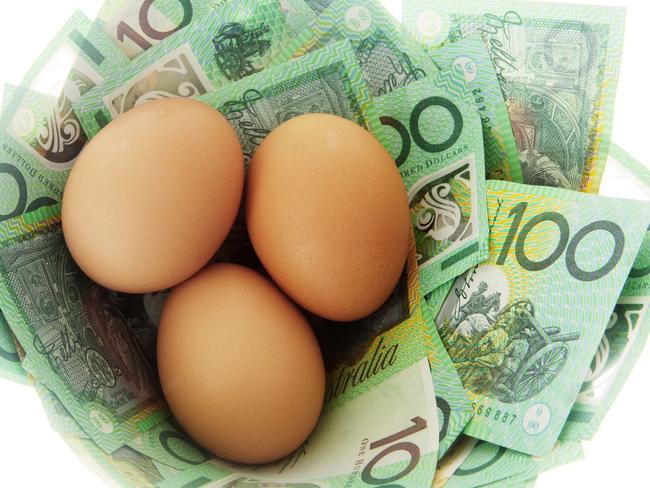
SUPERANNUATION CHANGES
*New laws are coming on July 1 that will cancel default life insurance cover on inactive default superannuation accounts that haven’t been topped up for a period of 16 months unless the holders opt in to the insurance by contacting their fund or by reactivating their account.
*Accounts classified as low balance (with less than $6,000) will have their fees capped at three per cent to assist in preventing them being swallowed up by fees.
*Inactive super accounts will close and could be transferred to government operated super fund MyGov.
*All super fund exit fees will be banned.
*One may increase their concessional contribution cap by carrying forward their unused concessional cap space amounts if they have a total super balance of less than $500,000.
*Retirees between 65-74 years of age with a super balance under $300,000 can make voluntary super contributions for the first year they no longer meet work test requirements.
*Before July 1 2017, funds could include an anti-detriment payment as part of a death benefit if a member dies and then claim a deduction for that payment. But from July 1 this year, no anti-detriment payment deduction is available.
*The Single Touch Payroll system will be extended to all employers from July 1, meaning the ATO will have information on how much super employers owe their workers. The ATO has announced that small businesses have a three month transition period to September 1.
POWER PRICES TO CHANGE
Australians could save on their electricity bills with a ‘default market offer’ (DMO) price coming from July 1 in NSW, southeast Queensland and SA. The price will act as a ‘cap’ on the cost retailers can incur from consumers on standing offers. In Victoria, the cost of electricity will be determined by the Victorian Government’s Victorian Default Offer (VDO).
In NSW, around 130,000 self-funded retirees will also be able to claim $200 a year to help with their power bills if they hold a Commonwealth Seniors Health Card.
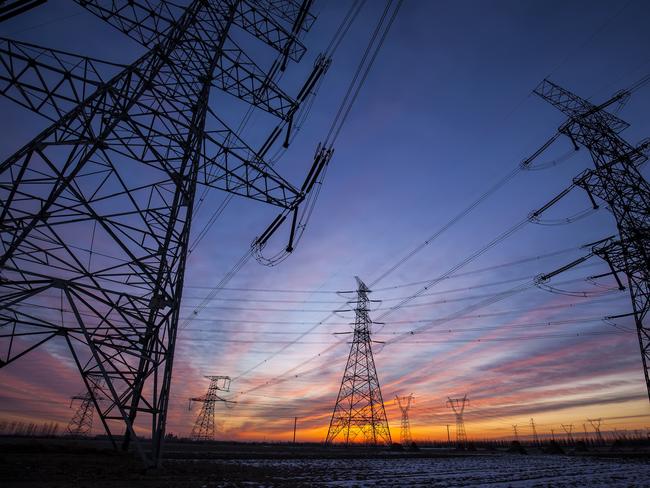
‘LOYALTY TAX’ AXED
In NSW, renewal notices for car and home insurance will include last year’s cost for the first time ever, revealing what’s been dubbed as a “loyalty tax”. Insurers IAG, Suncorp, Allianz and QBE will be adopting this practice nationally though.
PENALTY RATES AND MINIMUM WAGE
A three per cent increase to the minimum wage takes it to $740.80 per week or $19.49 per hour from the first full pay period starting on or after July 1. Some Sunday penalty rates will also change for those on hospitality and retail awards.
PROPERTY CHANGES
*In NSW, stamp duty brackets will be indexed to the Consumer Price Index (CPI) allowing homebuyers to put more money towards a deposit from July 1.
Holders of retirement visas (subclass 410 and 405) who meet residency requirements will be exempt from surcharge purchaser duty when buying a principal place of residence from July 1.
*In the ACT, stamp duty for eligible first home buyers is being removed if their total gross income of all home buyers and their domestic partners for the previous financial year is below $160,000, no buyer of the home has owned any other property in the last two years, and at least one owner lives in the home continuously for at least one year, starting within 12 months of settlement or completion of construction.
*In Victoria, the tax paid by foreign property investors will be increased from 7 to 8 per cent from July 1, bringing Victoria’s rate into line with NSW.
Tax paid by absentee landowners will be increased from 1.5 per cent to 2 per cent, also in line with NSW.
*From June 30 in Queensland, a new land tax foreign surcharge of 2 per cent will apply to foreign companies and trustees of foreign trusts that own land. An absentee surcharge will increase from 1.5-2 per cent and will apply to foreigners who own land but do not live in Australia. Australian citizens and Australian permanent residents holding permanent visas living, working or travelling overseas for an extended period will also no longer be assessed as absentees.

LUXURY CAR OWNERS HIT
In Victoria, cars valued at $100,000 and $150,000 will be charged a duty of $14 per $200 of market value. A duty of $18 per $200 of market value will be charged on vehicles worth more than $150,000. But these charges won’t apply to low-emissions passenger cars and cars used by farmers for their work on the land. All other states have a luxury car tax. Victoria’s will be the most expensive in Australia.
PAYROLL TAX RELIEF
The Queensland government will raise the payroll tax threshold from $1.1 million to $1.3 million from July 1, giving relief to an estimated 1500 businesses.
HIGHER EDUCATION LOAN PROGRAM
From July 1, the new minimum HELP repayment threshold will be $45,881 with a one per cent repayment rate.
A further 17 thresholds and repayment rates will also be introduced, up to a top threshold of $134,573 at which ten per cent of income is repayable.
HELP repayment thresholds will be indexed using the Consumer Price Index (CPI) instead of Average Weekly Earnings to ensure repayments are in line with cost of living.
Student Financial Supplement Scheme (SFSS) debts will be repaid after HELP debts are discharged. Currently, SFSS debts are paid concurrently with HELP debts.
The repayment thresholds for SFSS will also be brought into line with the HELP repayment thresholds from 2019—20, instead of the current three-tier repayment threshold.
SAFE TRAVEL FOR ABSTUDY STUDENTS
From July 1, primary or secondary students under 18 must have a Safe Travel plan, otherwise they will not get an ABSTUDY Fares Allowance for pre-booked travel.

NEW PAYMENTS FOR CARERS
Carers may be able to get a new Carer Supplement payment up to $600 from July 1 for each eligible person in their care. They may also be able to access a Child Disability Assistance Payment which can be up to $1,000 for each eligible child in their care.
NDIS PRICE INCREASES
The Federal Government announced an increase to price limits for therapists of almost $11 an hour, and a rise of up to 15.4 per cent for attendant care and community participation under the NDIS from July 1. These increases will inject more than $850 million into the NDIS market in 2019-20.
IMMIGRATION VISA FEES
The Department of Home Affairs announced that a 5.4 per cent Visa Application Charges (VAC) increase in fees will apply to applications made on or after July 1 on most visa subclasses. For example a student visa will increase from $505 to $606, a general skilled migration visa will rise from $3755 to $3958 and a partner visa will increase from $7160 to $7457.
WORK AND HOLIDAY VISAS
The Working Holiday Maker (WHM) visa program is changing to address labour shortages in regional Australia. WHM holders who complete six months of work in regional areas while on their second Working Holiday (subclass 417) visa or Work and Holiday (subclass 462) visa may be eligible to apply for a third visa from July 1.

TOLL CHANGES AND REGO
*In NSW, drivers who spend $15 or more a week on tolls will be eligible for half-priced rego. Drivers who spend $25 or more a week on tolls will continue to receive free rego from July 1.
On July 1, tolls for the Eastern Distributor (Northbound) will increase to $7.69 for cars and $15.37 for other motorists.
On the Hills M2, the Main Toll Plaza toll will be $7.60 for cars, and $22.80 for others. On the Pennant Hills Road, Herring Road and Christie Road ramps, cars will pay $3.80 and others will pay $11.40. On the Windsor Road ramps, cars will pay $2.70 and others will fork out $8.07. On Lane Cove Road, cars will pay $2.24 while others will pay $6.74.
On the Lane Cove Tunnel, only trucks will have an increased toll to $10.68 and the Military Road E-Ramp will be $5.34.
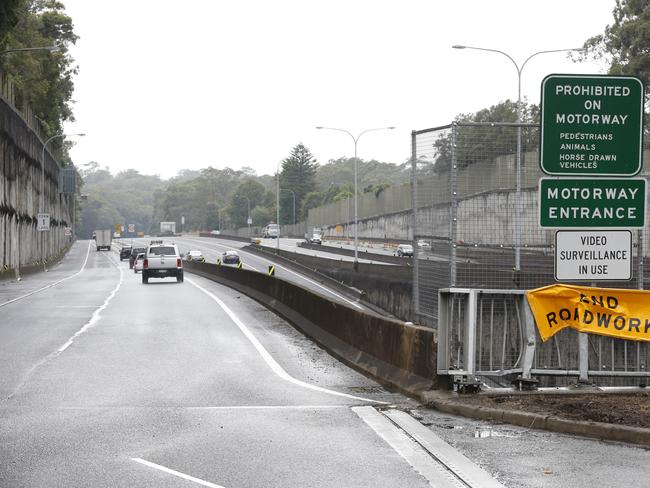
*In Victoria, taxi tolls will increase on CityLink and EastLink. On CityLink, the Western and Southern Link will be $6.40 each. Both links will be $8.45. A CityLink Metro Taxi Pass (day toll for a metropolitan taxi) will be $18.12, and CityLink Rural Taxi Pass will be $7. Batman Ave only has no toll. On EastLink, Melba Tunnel or Mullum Mullum Tunnel will cost $2.93, any part of EastLink south of Maroondah Highway will be $2.75, one tunnel plus any part of EastLink south of Maroondah Highway will cost $5.68, the Ringwood Bypass has no toll and an EastLink trip pass (for regional/rural taxis) will cost $6.36.
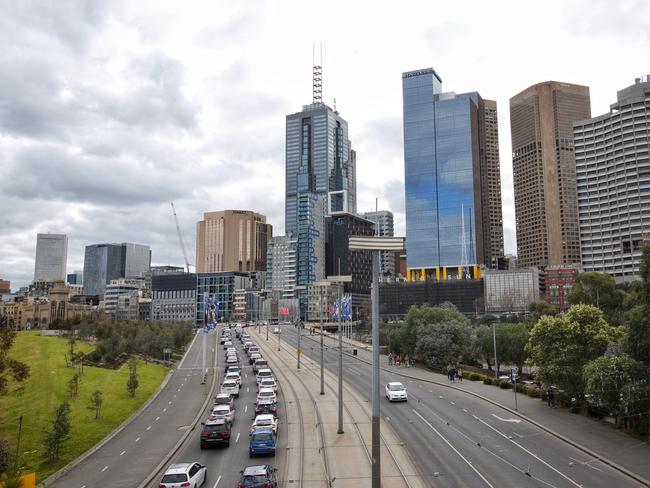
*In Queensland, toll changes come into force on July 1 on the Gateway and Logan motorways. For cars, the Murarrie on the Gateway Motorway toll will cost $4.62.
Kuraby/Compton Road on the Gateway Extension Motorway will cost $2.72, Loganlea on the Logan Motorway will be $1.75 and Heathwood/Paradise Road on the Logan Motorway will cost $2.88. For heavy commercial vehicles, the Murarrie on the Gateway Motorway will cost $14.18, Kuraby/Compton Road on the Gateway Extension Motorway will be $8.37, Loganlea on the Logan Motorway will be $5.36 and Heathwood/Paradise Road on the Logan Motorway will cost $8.85.
*In SA, drivers can choose their own compulsory third party insurance from four Government-approved insurers while registering their vehicles from July 1.
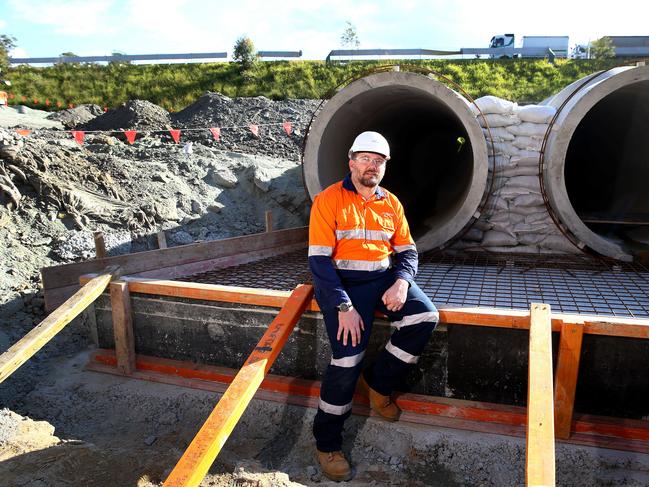
SELLING OR GIVING AWAY PETS
In NSW, those advertising kittens, cats, puppies or dogs for sale or to give away in NSW will need to include an identification number in advertisements.
It can be a microchip number, breeder identification number or a rehoming organisation number. The rules will apply to all advertisements, including those in newspapers, local posters, community notice boards, online advertising, including public ads on websites such as the Trading Post, Gumtree and social media sites.

PRIVATE HEALTH INSURANCE
Health insurers are no longer required to send private health insurance statements to the ATO from July 1. Previously they were required to send statements by July 15 each year, it is now optional.
DUTY ON TOBACCO IMPORTS
Customs duty will apply to tobacco products as soon they are imported from July 1, removing the ability of tobacco importers to defer taxation using warehousing arrangements. The importer will have one year to pay the customs duty amount and will apply to all imported tobacco products stored in warehouses, including legally imported products.


